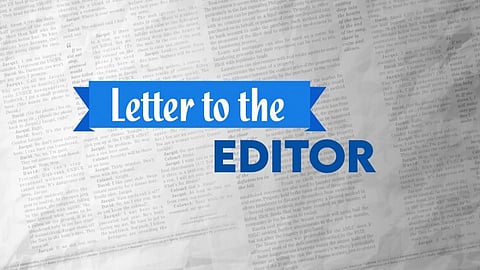
- NEWS
- the EDIT
- COMMENTARY
- BUSINESS
- LIFE
- SHOW
- ACTION
- GLOBAL GOALS
- SNAPS
- DYARYO TIRADA
- MORE

Dear Editor,
The brouhaha over the reinvestigation of the so-called extrajudicial killings during the Duterte administration’s war on drugs is now stirring opinions of both those who were allegedly involved and those who are seeking justice.
Just recently, the national government rejected the idea of involving the International Criminal Court (ICC) in the investigation into the extrajudicial killings or EJKs during the term of former President Rodrigo Duterte.
The move asserts the Philippine government’s sovereignty and capacity to handle the EJK investigations internally and, amid all this, the Office of the Solicitor General (OSG) suggested the ICC’s intervention is unnecessary as the country has its own judicial system capable of conducting a fair and impartial probe.
The OSG stressed that the creation of a government-led investigative committee signifies the administration’s commitment to addressing the allegations.
However, the credibility of this internal investigation faces challenges, as revelations by former police colonel Royina Garma regarding a three-tiered reward system for killing drug suspects has cast doubt on the government’s narrative of a legitimate drug war.
We think that the lack of transparency surrounding these operations and the continued impunity enjoyed by those suspected of involvement in EJKs raise concerns about the effectiveness of an internal probe.
From a certain point of view, the ICC’s involvement serves as a crucial safeguard in cases where domestic institutions are deemed unwilling or unable to conduct genuine investigations, as the ICC’s mandate is to hold individuals accountable for international crimes, including crimes against humanity.
In the context of the EJKs, the ICC’s intervention could be a powerful tool to deter future human rights abuses and ensure justice for the victims, and the ideal scenario would be a robust and transparent domestic investigation that delivers justice for those who have lost their lives.
For this, the government must demonstrate its commitment to impartiality by allowing an independent body to oversee the investigations, which could involve creating a commission with international participation or granting a local investigative body full autonomy.
International scrutiny through bodies like the ICC plays a vital role in holding governments accountable for human rights violations. It sends a strong message that such abuses will not be tolerated and that perpetrators will be brought to justice.
But one thing is certain: The fight for accountability for EJKs transcends political divides. It is a collective demand for justice for the victims and their families and the government has a moral and legal obligation to ensure a credible investigation that delivers truth and accountability.
The path towards achieving genuine accountability for the EJKs requires a multi-pronged approach. A robust domestic investigation with international oversight, coupled with genuine efforts to reform the police and justice system, is essential.
The fight for justice is a long and arduous one, but it is a fight worth pursuing for the sake of the victims and the future of the Philippines.
Edilberto Rodriguez
bertrod_1979@yahoo.com
